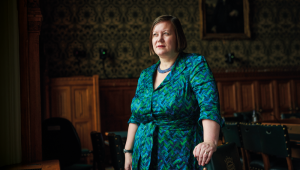Hillier was speaking as the Institute for Government published its annual Whitehall Monitor report, which found that the Treasury was among the least transparent departments.
Although technology was beginning to affect the way citizens accessed public services, government as a whole was bad at explaining key data, the report concluded.
Using the government’s own data, the report concluded that net liabilities across Whitehall had increased from £1.2trn in 2010/11 to £1.8trn in 2014/15. Liabilities had fluctuated at departmental level because, for example, the Treasury has disposed of some of its assets such as its stakes in banks taken during the financial crisis, the Department of Health has seen an increase through provision for clinical negligence claims, as has the Department for Energy and Climate Change due to nuclear decommissioning.
However, the analysis concluded it was particularly difficult to find information on departmental spending changes as a result of the government’s austerity drive, with the Treasury bottom of the IfG’s spending transparency league table for the second year in a row.
In addition, impact indicators, intended to track progress against departmental business plans, were not being implemented uniformly across Whitehall. The Department for Communities and Local Government, the Department for Work and Pensions and the Department for Culture, Media and Sport scored highly as they publish complete datasets in an open format. However, the Treasury website led researchers to a series of dead links, while the data produced by Cabinet Office was out of date.
Hillier said the report showed that “departments need to up their game and release data in a more manageable form so that individual citizens can more easily access information about how their tax pounds are spent”.
She added: “It’s clear that the civil service and government services will be facing very tight spending cuts over the next four and half years. As a number of our recent reports have shown the squeeze is now on – we are well beyond efficiencies and into the realms of reshaping and reducing public services.”
The report’s lead author Gavin Freeguard stated that as the government wanted to do more for less, there was a need for data to be both published and used effectively. “Departments and parliament must use it to do their job, and the public must be able to access it to hold the government to account,” he added.
Open Data Institute director Jeni Tennison added that the report showed how open data could be used to improve understanding of government, with higher quality and more consistent data likely to provide even greater insights.












